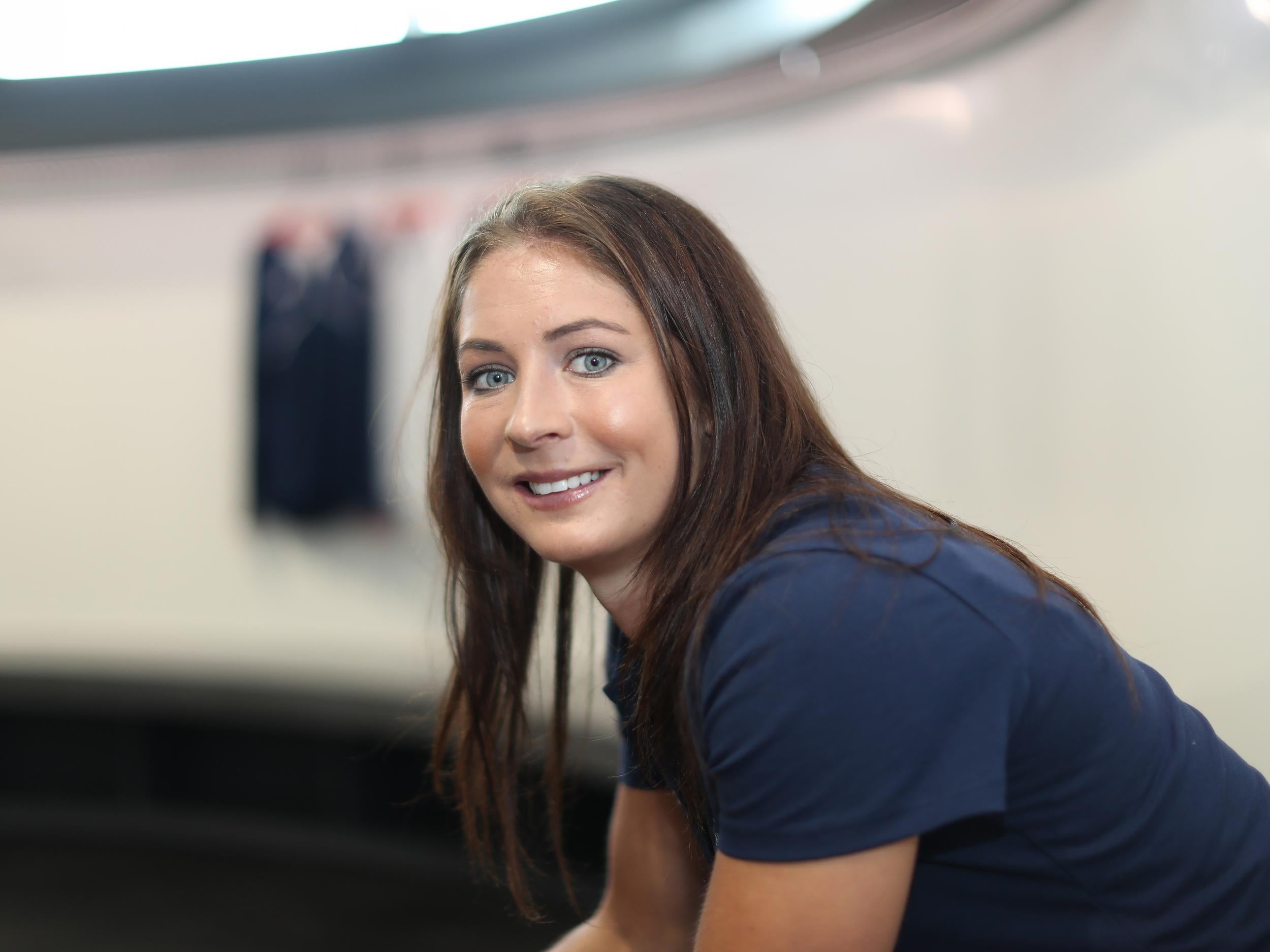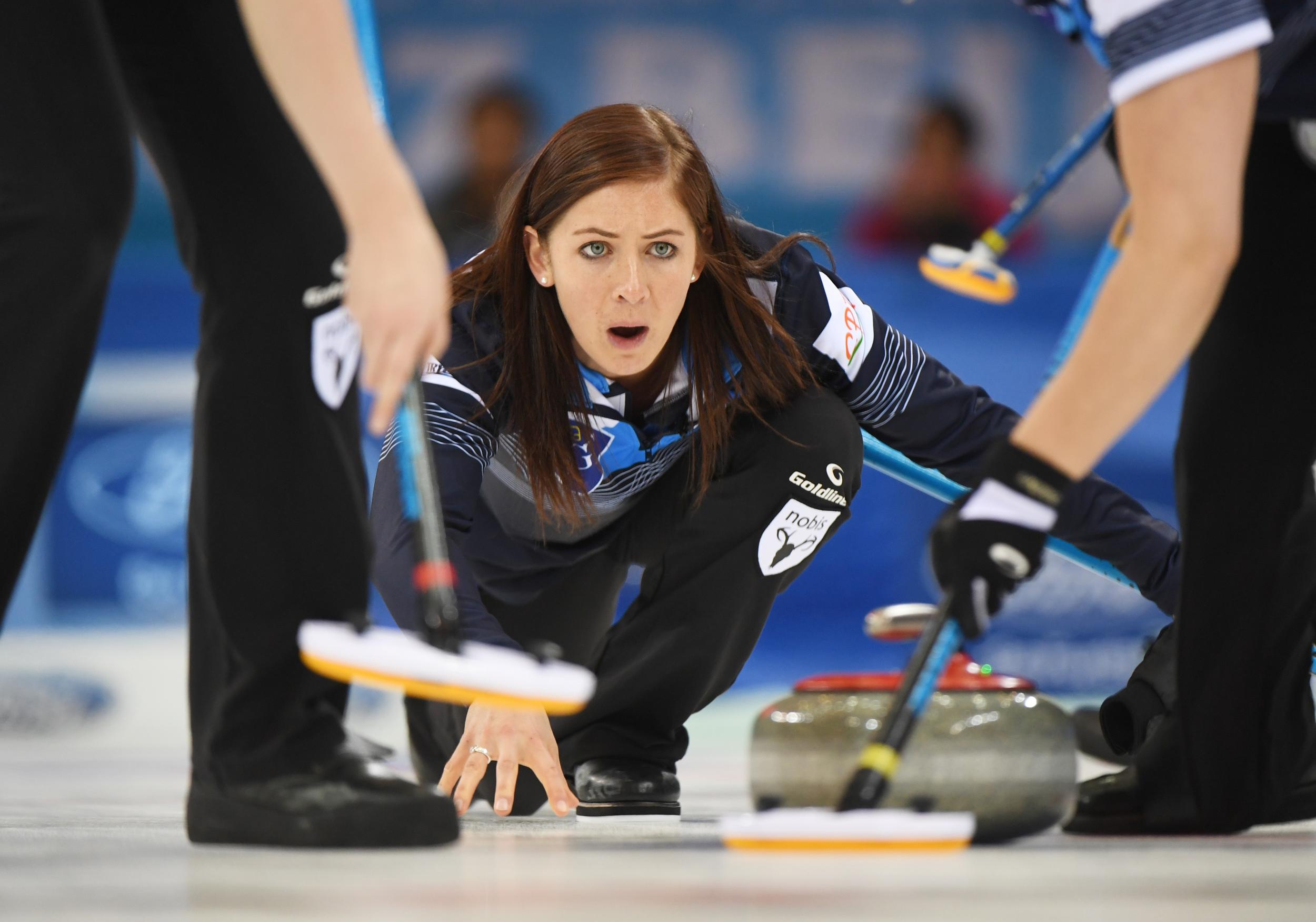Winter Olympics 2018: Eve Muirhead on building on Sochi, the growth of curling and her brothers in Pyeongchang
Muirhead is competing in her third Olympics despite only being 27 years old and is again looking to inspire the next generation of curling enthusiasts

The first time you meet Eve Muirhead, it’s her eyes which strike you. When Muirhead fixes you with her intense stare - the kind that British sports fans will become accustomed to seeing on TV over the next week and a half as curling once again transfixes a nation - it’s impossible not to notice their piercing shade of blue, a shade which is about as vivid as you can get on the spectrum without the aid of coloured contacts.
It’s Muirhead’s eyes which hint most at the inner steel which has long marked her out as one of world curling’s toughest competitors. In a sport where curlers tend to ripen and mature like a fine Scottish malt whisky, Muirhead is virtually a prodigy by the usual standards – a three time Olympian (and bronze medallist in Sochi), former world champion and twice European champion, all by the tender age of 27. In comparison, Rachel Homan, Canadian skip and one of Muirhead’s biggest rivals in Pyeongchang, is competing at her first Olympics at the same age.
“The wealth of experience that she’s had in such a short career is unbelievable,” says Glenn Howard, a gnarled 55-year-old Canadian and curling legend, who is mentoring the British team in South Korea. “Three Olympics by 27, I mean, are you kidding me? She’s got so much more at that tender age which a lot of players don’t have.”
When I meet Muirhead in a small tent in the Olympic park, the British team have just wrapped up a clinical 10-3 opening victory against the Olympic Athletes from Russia. Muirhead in particular, seemed as little fazed as she did when landing the decisive stone to win the bronze in Sochi four years ago, a moment where virtually every nerve in the stadium was jangling, apart from hers.
“Over the course of my career I’ve probably lost as many games as I’ve won, and so I’ve learnt how to block out a lot of the unhelpful thoughts and never let them really cross my mind,” she says, explaining her psyche.
“Routine is very important in curling and you learn to become a bit robotic. Before that final shot in Sochi I was just on autopilot. I told my team-mate where to put the brush, went through my usual routines, got up to the hack (the starting blocks curlers slide off from), and just thought about the weight I needed to give the stone, compared to previous shots I’d made in that game. For me it just felt routine, a shot I’d practised almost every day of my life.”
Muirhead makes such composure sound so simple, but a mere glance around the rinks at the Olympic arena indicates this is not the case. Crucial shots are missed, brushes are petulantly thrown, words are exchanged. But not with the British skip. “Eve is a clutch performer,” Howard says. “And that’s just the focus she has. She can just absolutely disassociate herself with everything, all the noise around her, to deal with the task in hand. And that’s what separates a great from a good skip.”

Muirhead says that she only realised the magnitude of that shot in Sochi, when she emerged from her concentration bubble to the world around her. “It’s really weird looking back at it, because so many family members and friends have asked me what I was thinking then, and the answer is nothing really. While my team-mates have told me how nervous they were, my parents have definitely said how nervous they were. I remember turning round to them and seeing all the emotion.”
Family is a key theme to the Muirhead story. Indeed, curling runs in the blood. Her father Gordon competed internationally, going to the Albertville 1992 Winter Olympics when curling was a demonstration sport, and winning four world championship medals, one of them gold. These were the days before Rhona Martin and her gold medal-winning team at the 2002 Olympics wrested curling into the minds of a nation, and when Muirhead first picked up a stone as a 9-year-old at Dunkeld Curling Club in Pitlochry, few Scots even knew what the sport was.
“He still tries to give me advice,” she laughs. “But I’ve really learnt most of the things I know from my dad. He was the one who was coaching me all those years ago. In those days, your friends would ask you what you’d been doing and if you said curling, nine out of 10 people wouldn’t really know what that was. But Rhona changed all that and put it on the map. I was saying to the girls (her team-mates) the other day, you’ll tell someone now that you’re a curler and they’ll be like ‘Oh yeah we watched that game. I remember that.’ Of course we’re still nothing like mainstream as football, rugby, or golf but curling’s getting a little bit more out there which is fantastic.”

But while the British public are certainly aware of curling, the sport maintains a reputation as something of an oddity. In comparison to Canada - the powerhouse of the sport and a nation of around 1 million amateur curlers, where to diehard fans it’s akin to a religion - in the UK, curling is still seen as frankly, a bit weird.
“For me the biggest thing is that a lot of people don’t realise the physical demands of curling,” Muirhead says. “That’s something that perhaps doesn’t come across on TV but if you look at how the sweepers work during a game, and try to imagine doing a very high interval session for three hours. It can be very high intensity and hard on the body. Our strength and conditioning coach back home is a big guy, he lifts a lot of weights, and he gave curling a shot. The next day he could hardly walk. It definitely uses different muscles which most people aren’t used to.”
There will also be a number of differences for Muirhead at this Olympics, compared to her previous two. For one, she will not be battling the effects coeliac disease, as she was during the run-up to Sochi, having gone gluten-free after receiving a diagnosis. “It’s not something I can’t control, but I’ve dealt with it really well and now I feel in the best shape I’ve ever been going into a Winter Olympic Games which is great as physical fitness really impacts on mental fitness,” she says. “Luckily the Olympic village caters for everyone with a lot of gluten-free options and I always make sure I have plenty of things with me anyway.”
And secondly, there are now two more Muirheads in tow, with brothers Thomas and Glen, 22 and 28, competing at their first Olympics for the British men’s team. “It’s weird when you’re walking around the village and see them, you’re not used to seeing your brothers around here,” Muirhead smiles. “But it’s really cool to have them both here, the opening ceremony was really special for them, but course they’re just as competitive as us so they’re now fully focused on what they’re doing.”
Naturally, Muirhead cannot resist passing on the occasionally titbit of sisterly advice. “Of course they don’t ask me, because I’m their sister!” she laughs. “But I speak to them about the games, and I get extremely nervous when they’re playing. I hate watching as I know what they’re going through, the hours they’ve put in and all their preparations. I’d rather be throwing the stone any day than watching. I know they get nervous watching me too, as does our mum. She’s going to be here watching us so no doubt she’ll have no nails left by the end of the Games.”
Join our commenting forum
Join thought-provoking conversations, follow other Independent readers and see their replies
Comments
Bookmark popover
Removed from bookmarks